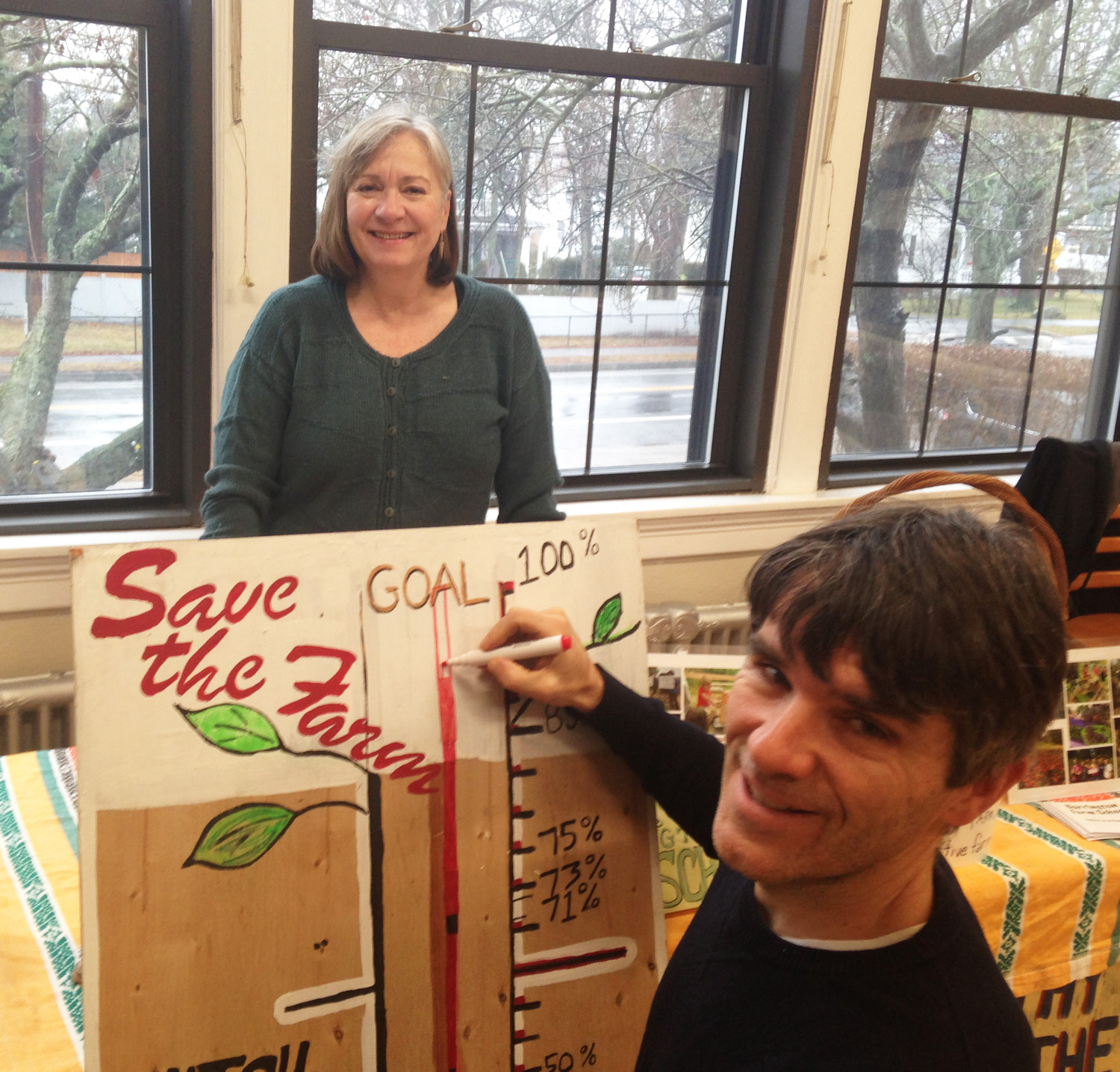Good news story: Save The Farm achieves fundraising goal
Volunteer community effort to preserve the Vendituoli Farm as a working farm in Barrington succeeds
What is the status of the Sankofa Initiative and its new commercial kitchen? Is there an opportunity to write a history of farming in Barrington? How can the efforts to expand growing beds in urban areas be expanded in Rhode Island? Is there a way for the Barrington Farm School to team up and collaborate with FarmFresh RI and its commercial kitchen in Pawtucket to create a farm-grown product for commercial sale? What are the opportunities to teach parents about composting, growing under coldframes, and organic growing practices, as part of an adult education curriculum?
Farming, much like cooking, or writing, or painting, takes time. It is often done in harmony with the outside world of unpredictable weather conditions. Enabling students to expand their educational experience into learning about the fragile relationships between weather, water, growing food and climate change is the kind of hands-on experience that cannot be learned by living in a technological real estate tower.
BARRINGTON – The good news that Save The Farm, a volunteer community group attempting to preserve a nearly four acre parcel as a working farm, had surpassed its $225,000 fundraising goal needed to purchase the farm, came in a Friday afternoon news release.
On Feb. 5, the R.I. Department of Environmental Management announced that it was awarding $50,000 to the Barrington Conservation Land Trust to purchase, in partnership with Save The Farm, the property known as the Vendituoli farm.
The $50,000 award, which pushed the fundraising total over the needed $250,000 to buy the farm from the William “Billy” Vendituoli estate in probate court, was one of 17 projects awarded $3.75 million in grants to preserve 889 acres of open space and farmland, with funding from a November 2016 “green” bond approved by voters.
The grassroots effort to save the farm had been led in part by Tim Faulkner, who in his day job is a reporter with ecoRI News. The goal of the group is to promote the mission of the Barrington Farm School, in order to provide an opportunity for young people in the town to learn about farming and the farm’s role in protecting the local ecosystem and environment.
The Vendituoli property had originally been Billy Vendituoli’s grandparents’ farm, which they started in 1897 when they came over from Italy, Faulkner told ConvergenceRI in a November 2017 interview. [See link below to ConvergenceRI story, “Preserving a working farm in Barrington as a farm school.”
The farm is nestled in between the police and fire stations on Federal Road, across Middle Highway from the former St. Andrews farm property, now managed by the Barrington Conservation Land Trust.
The next steps
Preserving the farm, much like farming itself, is a constant, four-season job, according to Faulkner, who said he was delighted by the news of the DEM grant.
Faulkner said he had appeared before probate court on Monday, Feb. 5, to give the judge an update, before the news of the grant was announced. A new update is probably now needed, he said. “The actual closing will probably take place in mid-April,” he told ConvergenceRI.
However, many of the ongoing chores are just beginning. “We’ve got to thank the community for all their support; there have been a lot of volunteers who have contributed.”
In addition, Faulkner said that in the next few weeks he would be busy writing a management plan for the farm as well as writing grants.
While the seeds have been purchased for the upcoming growing season, he explained, “A lot of planning has to get done, not just for the student farmers, but also for parents who want to participate as well, scheduling when they come.”
Other chores include setting up an off-grid solar system to pump water from the well at the farm from an existing well, perhaps following the model of the solar unit that was installed at the Barrington Community Farm.
“We lost our electricity source at the farm,” Faulkner said, when the home attached to the property was sold. “It is a huge priority to make sure we get our water.”
The other major project is to reconstruct the former coldframe on the property – what Faulkner called “the hoop greenhouse” – to be able to do some inside growing in advance of planting directly in the soil.
Over the top
On Sunday morning, Feb. 11, at Hope & Main in Warren market showcasing local food entrepreneurs, Faulkner and Cyndee Fuller, a member of the Save The Farm board of directors, set up their volunteer booth as part of the continuing outreach efforts.
Faulkner inked in the thermometer on the plywood board showing that the fundraising effort had reached 100 percent of its goal.
In reflecting on what he had learned in the process, Faulkner took his time to consider the question before answering. “It feels like the end of the first chapter in a much longer book that is going to be written,” he said. “Definitely the end of the beginning of a much longer journey.
Faulkner said that personally, he was looking forward to learning more about agriculture and food; and that there were a lot of people in the local community who wanted to as well.






